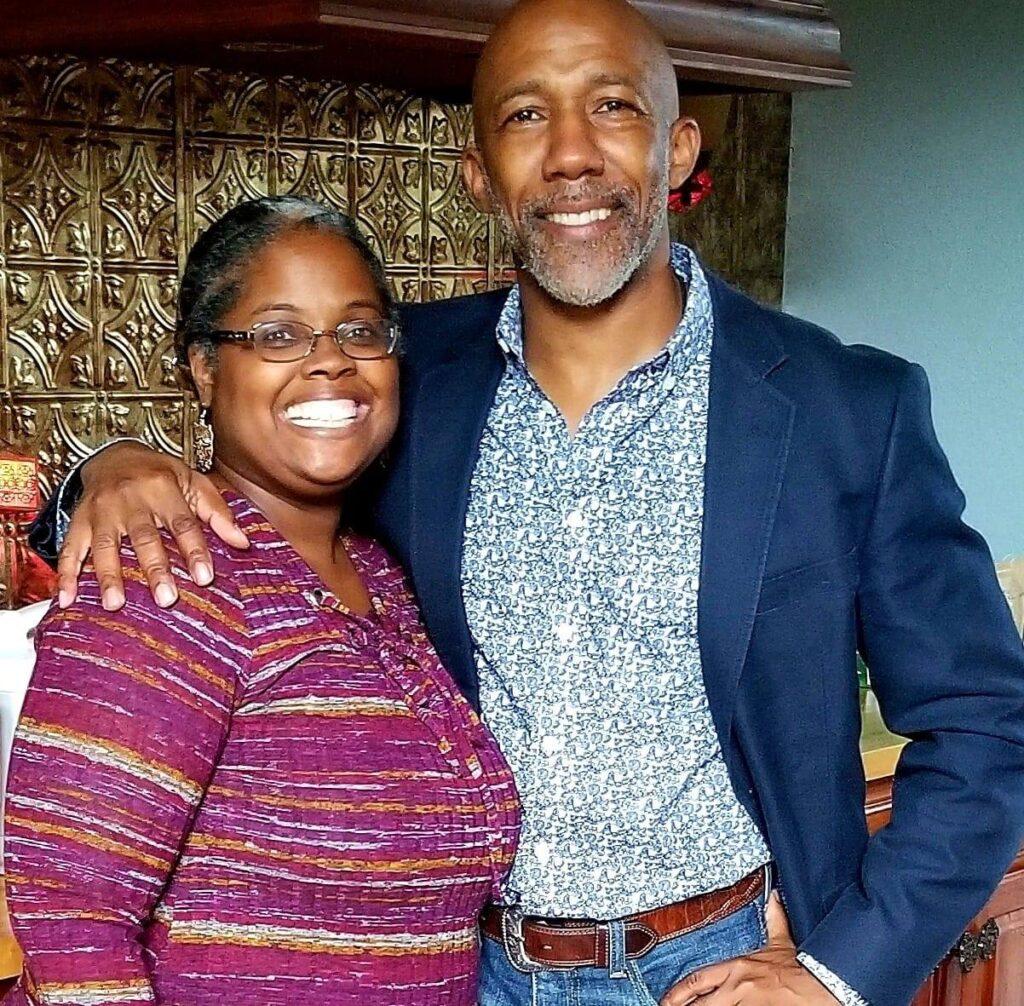The Way of the Master – Selection (Luke 6:12-16)

Figure 1 – A few of the people in our Servant Team. With humble hearts and grace from God they make the ministry happen.
12 Now it came to pass in those days that He went out to the mountain to pray, and continued all night in prayer to God. 13 And when it was day, He called His disciples to Himself; and from them He chose twelve whom He also named apostles: 14 Simon, whom He also named Peter, and Andrew his brother; James and John; Philip and Bartholomew; 15 Matthew and Thomas; James the son of Alphaeus, and Simon called the Zealot; 16 Judas the son of James, and Judas Iscariot who also became a traitor.
Most of the targeting literature that I have read from ministry training reads the same way. That is, the books are similar in regard to how they determine who to reach — focus on the finest people, on future leaders, on the people in the most strategic position. These answers are appalling. When I first got a whiff of this idea, although I was a nerd in my teens, it smelled like elitism, preferential treatment for people with high potential, and evangelism based on human wisdom. In my fifties it still stinks.
I have a single digit IQ and do not lead the pack of people regarded as righteous. But the flaw is so plain that even someone as dull and boorish as myself can see it. Using this type of targeting you miss Joseph the carpenter, David in the field keeping flocks, and Jesus Himself as He served Joseph in the work of carpentry in the notorious town of Nazareth. (Of course Jesus did not need to be reached).
A program of picking people based on finding the best and the brightest in the finest institutions of learning will overlook Peter, James, John, Matthew, Philip, Andrew, and the other disciples. These men were not in the best synagogues at the feet of the most illustrious teachers. They were in fishing boats mending nets (Matthew 4:18-22), in tax offices (Matthew 9:9-11; Luke 5:27-28), following peculiar preachers in the wilderness (John 1:35-39), and zealots in movements to overthrow secular oppressors. Our way of selecting people for ministry would not have brought theses men in for serving and certainly not leading. Instead of having advanced degrees and successful businesses they were found, by the world’s standards, to be idiots (Acts 4:13). Our formulas and algorithms are the decision making technologies of secular society. How did they become so important for ministry? They promise to make us better than Jesus in picking the person most likely to succeed in ministry. But is God looking for people deemed most likely to succeed?
26 For you see your calling, brethren, that not many wise according to the flesh, not many mighty (οὐ πολλοὶ δυνατοί), not many noble, are called. 27 But God has chosen the foolish things of the world to put to shame the wise, and God has chosen the weak things of the world to put to shame the things which are mighty; 28 and the base things of the world and the things which are despised God has chosen, and the things which are not, to bring to nothing the things that are, 29 that no flesh should glory in His presence. (1 Corinthians 1:26-29, NKJV)
Why do we use these other methods? Because we seek to be liberated from the humiliating labor of spending all night in prayer (Luke 6:12). Regarding the fact that not many mighty are called, the writer is not saying that those called tend to be physically weak. The adjective mighty is used to indicate that few people considered important or influential are called to faith in Christ.
87.43 οἱ δυνατοί: important persons, based upon their power or influence—‘important, influential.’ οἱ οὖν ἐν ὑμῖν, φησίν, δυνατοὶ συγκαταβάντες εἴ τί ἐστιν ἐν τῷ ἀνδρὶ ἄτοπον κατηγορείτωσαν αὐτοῦ ‘let your important persons go (to Caesarea) with me, he said, and accuse the man if he has done anything wrong’ Ac 25:5. (Louw, 1996, p. 737)
And yet we are convinced that Christianity is going to go forward by leaps and bounds if more actors, artists, athletes, or politicians trust Christ. It becomes the ridiculous rationale for a focus on reaching the elite. (Some have become bold in raising money so that they can spend time as missionaries to the privileged.) But how should we do it? Like Jesus did.
Jesus’ Selected People for Ministry through Prayer
So then, how were the apostles selected? That is, how did Jesus pick them? Since he is our example, our program, and the Way of our life (John 14:6), what do we learn from His example? When we consider the text of Luke we see that they were actually selected by the Father.
Let us notice the prominence of prayer in His ministry:
- He Longed to be Alone (Matt. 14:23) – Even though He loved them, He also needed to be away from them at times. Their neediness kept them constantly clamoring for attention and kept Him unable be in quiet conversations with the Father (1 Kings 19:11-13).
- His Plans Came in Prayer (Mark 1:35-36) – Look at Him and see Jesus’ ministry priorities. It is not in planning but in praying. See Him retreat from the company of His disciples and the ongoing onslaught of asking from the crowds (Mark 1:32-34); everyone was looking for Him (Mark 1:36). Why did he get away to pray? To get what is needed (Mark 1:38); He did not make up His ministry in the moment. The directions were delivered to Him in private discussions with the Father.
- Frequent Retreating was His Response to Ministry Growth (Luke 5:16) – Let us learn the lesson of it. A growing ministry is started in prayer (Luke 3:21; Acts 1:14). And that is the only way it can be maintained. When the Master’s ministry begins to grow (Luke 5:15) He is often getting away from it to get help for it.
- Ministry Assessments Acquired in His Asking Time (Luke 9:18) – It is obvious that there is a relationship between Jesus’ question and His time in prayer. The implication is not difficult to discern; in prayer He was told what questions to ask. Your ministry cannot be adequately assessed using formulas and rubrics developed for someone else; get your key questions like Jesus did.
- Expounding Expectations by Example (Luke 11:1) – We are well into the ministry of Jesus when it finally dawns on His disciples that there is a direct correlation between the marvelous ministry of Jesus and the tendency to be found in prayer. They are watching Him and they are learning the power of prayer from the pulpit of Jesus’ day-to-day living.
In Prayer Let God Pick the Persons That We Pour Into (Luke 6:12-13)
Jesus continued all night in prayer to God (Luke 6:12). In the morning He called His disciples to Himself (Luke 6:13). I must admit that I have often put these things in the wrong order. After having made a choice I am then found praying to succeed in it. “Bless my will, God! Pour out your favor on my preference!” When this happens we are less concerned with making the right decision and more concerned with making our decision right. But not Jesus. This is the One in Whom the Father is well pleased (Matthew 3:17). And we are admonished to hear Him (Matthew 17:5). What is He saying? He is telling us the importance of prayer in the selection of people to work with.
The people that you will pour into may not be your preferred personalities. You would not pick them. But final say, based on the example of our Savior, is to be sought from God. Jesus is trying to tell us through His words and His works that it is most important that we stay with the Father’s will — even if it means choosing a backbiting backstabber and the one who will ultimately betray us (Luke 6:16).
Minister to the Masses but Focus on a Few
The ministry will eventually become more effective if the focus is on a few. Previously we have seen that the few should be chosen based on time in prayer with God. It is less of a decision and more of a discovery of God’s will; He is waiting to tell you His desire about the decision. And the few should be the basis for how the ministry is managed, how the crowd is fed, and how the future of the church is preserved. Everything we do is about the crowd, the gathering of a multitude, and the counts.
Most of the evangelistic efforts of the church begin with the multitudes under the assumption that the church is qualified to preserve what good is done. The result is our spectacular emphasis on numbers of converts, candidates for baptism, and more members for the church, with little or no genuine concern manifested toward the establishment of these souls in the love and power of God, let alone the preservation and continuation of the work. (Coleman, 2006, pp. 29-30)
How did Jesus do it? That is, how did he allocate his time in ministry? There were crowds that He served. There was a core that he concentrated on. Within the core there was a cadre of men given special access to Christ. And then there was the one. The one was impetuous (Mark 14:47; John 18:10-11), arrogant (Matthew 16:22-23; Mark 8:32-33), lacking spiritual discipline (Matthew 26:40; Mark 14:37), delusional about his own spiritual strength (Matthew 26:31-35; Matthew 26:69-75), and a target of Satan’s attacks (Luke 22:31-32). But he was also key to what the Lord would do to start and build the church (Matthew 16:16-19). The diagram below helps illustrate that Jesus focused on a few but ministered to the masses.
Action Plan
- Pray – Prayerfully consider who to focus on.
- Pick – Select the people that you are going to focus on.
- Pour – Graciously give your time and resources to helping them follow Jesus.
- Push – Teach them to share Christ and mentor others.
In His grip by His grace,
Roderick L. Barnes, Sr.
References
Coleman, R. E. (2006). The Master Plan of Evangelism (pp. 29–30). Revell.

